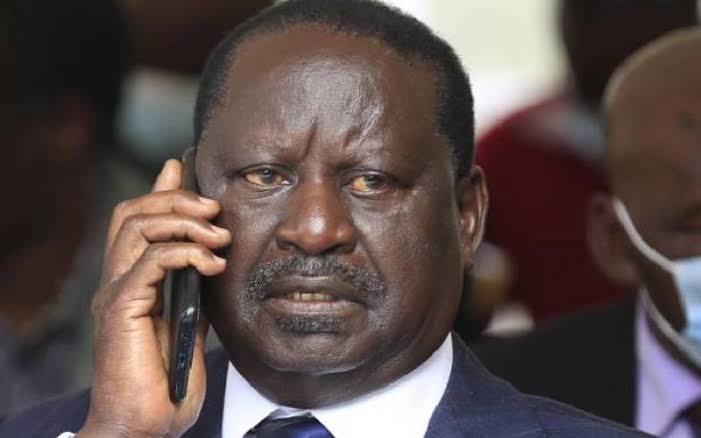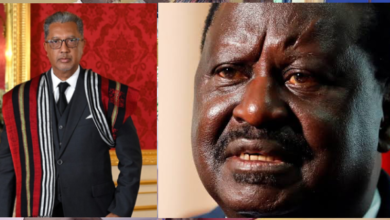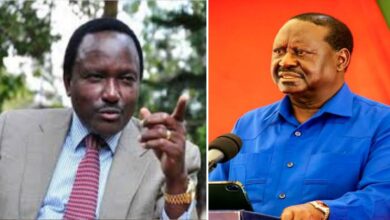Raila Odinga’s AU Defeat: How Kenya’s Abduction Controversies Cost Him the Chairmanship.

In the just concluded African Union Commission (AUC) chairperson elections held on February 15, 2025, in Addis Ababa, Ethiopia, former Kenyan Prime Minister Raila Odinga was defeated by Djibouti’s Foreign Affairs Minister, Mahamoud Ali Youssouf. The election process extended to seven rounds, with Youssouf ultimately securing the required 33 votes to clinch the position. Odinga led in the initial rounds but was overtaken as the voting progressed, leading to his elimination in the sixth round.
Several factors contributed to Odinga’s loss, notably recent incidents in Kenya that have raised concerns about the country’s adherence to international laws and human rights standards. These incidents include the abduction of veteran Ugandan opposition leader Kizza Besigye and the forced return of Turkish nationals from Kenya.
Abduction of Kizza Besigye
On November 16, 2024, Kizza Besigye was reportedly abducted in Nairobi, Kenya, where he had traveled to attend a book launch. He was subsequently transferred to Uganda and arraigned before a military court in Kampala on November 20, facing charges related to illegal possession of firearms and treachery, the latter carrying the death penalty. These actions have been widely condemned by human rights organizations, which argue that his abduction and trial in a military court violate international human rights laws.
Abduction of Turkish Nationals
In October 2024, several Turkish citizens were abducted in Nairobi by masked men. Four of them were forcibly returned to Turkey on October 20, despite having sought asylum in Kenya. This incident drew criticism from international bodies, including Amnesty International, which highlighted it as part of a troubling trend of transnational repression and a blatant disregard for international human rights obligations.
Impact on Kenya’s International Standing
These incidents have tarnished Kenya’s reputation as a nation that upholds international laws and human rights. The abductions and forced repatriations suggest a pattern of transnational repression, raising concerns among international observers about Kenya’s commitment to protecting asylum seekers and political dissidents. Such actions are reminiscent of a bygone era when state-sponsored kidnappings and cross-border renditions were prevalent, undermining the principles of sovereignty and human rights.
Implications for Raila Odinga’s AUC Chairmanship Bid
As a prominent Kenyan political figure, Raila Odinga’s candidacy for the AUC chairperson position was inevitably influenced by his home country’s international conduct. The recent human rights violations and disregard for international protocols likely eroded confidence among African Union member states in Kenya’s commitment to continental values and legal standards. This erosion of trust may have been a significant factor contributing to Odinga’s defeat in the election.
Recommended Call to Action
In light of these developments, it would be prudent for Raila Odinga to return to Kenya and address these pressing issues. By holding President William Ruto’s government accountable for actions that contravene international laws and human rights standards, Odinga can reaffirm his commitment to justice and the rule of law. Such a stance would not only restore Kenya’s standing in the international community but also strengthen its moral authority within the African Union.
By confronting these challenges head-on, Kenya can reaffirm its commitment to upholding human rights and international law, thereby strengthening its position within the African and global communities.
 Yasin Ali is a Social-political analyst based in Lodwar, Turkana County.
Yasin Ali is a Social-political analyst based in Lodwar, Turkana County.




